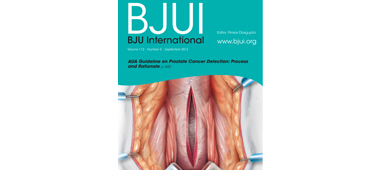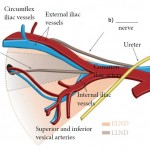Article of the week: The AUA speaks: prostate cancer detection guideline
Every week the Editor-in-Chief selects the Article of the Week from the current issue of BJUI. The abstract is reproduced below and you can click on the button to read the full article, which is freely available to all readers for at least 30 days from the time of this post.
If you only have time to read one article this week, it should be this one.
American Urological Association (AUA) Guideline on prostate cancer detection: process and rationale
H. Ballentine Carter
The Johns Hopkins University School of Medicine, Department of Urology, The James Buchanan Brady Urological Institute, Johns Hopkins Hospital, Baltimore, MD, USA
ABSTRACT
To review the process and rationale for the American Urological Association (AUA) guideline on prostate cancer detection. The AUA guideline on detection of prostate cancer involved a systematic literature review of >300 studies that evaluated outcomes important to patients (prostate cancer, incidence/mortality, health-related quality of life, diagnostic accuracy and harms of testing). A multidisciplinary panel interpreted the evidence and formulated statements to assist the urologist and the asymptomatic average-risk man in decision-making about prostate cancer detection. Other than prostate-specific antigen (PSA)-based prostate cancer screening, there was no evidence to address the outcomes of interest to patients. The strongest evidence that benefits may outweigh harms was in men aged 55–69 years undergoing PSA-based screening. This led the panel to recommend shared decision-making for these men at average risk, but recommend against routine screening for other age groups at average risk. Further, to reduce the harms associated with screening (false positive tests, over diagnosis, over treatment), the panel recommended against annual screening for those who choose to be screened. A panel under the auspices of the AUA recommended shared decision-making for the average risk asymptomatic man aged 55–69 years considering PSA-based screening for prostate cancer detection.
Read Previous Articles of the Week




Bal – congratulations on a difficult job well done!
Pragmatic, thoughtful, controversial but scientific.